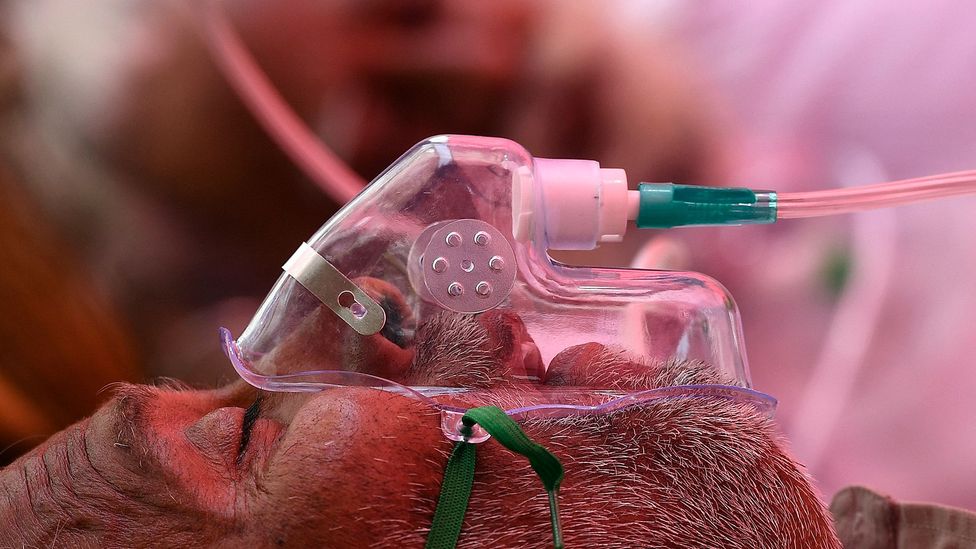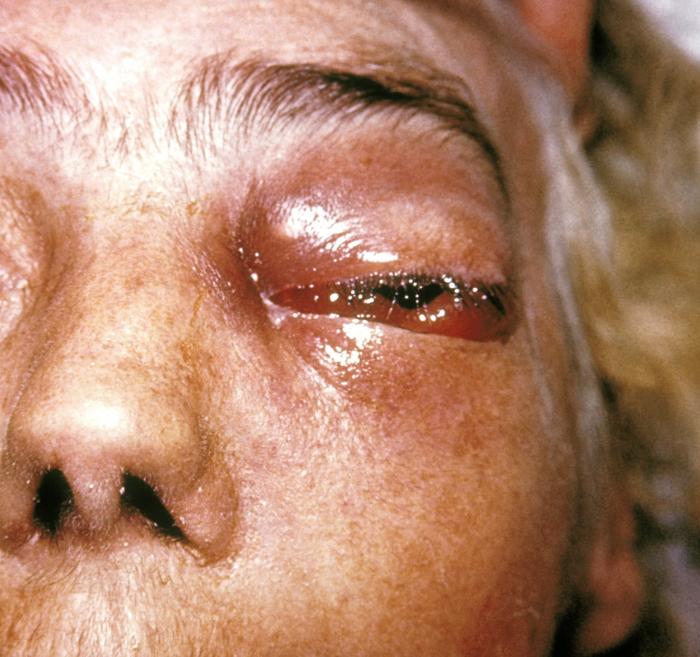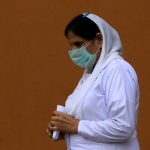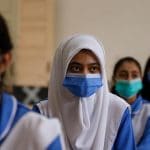In Karachi, infectious disease experts have highlighted numerous cases of black fungus (mucormycosis). Even some deaths were reported, specifically in COVID-19 patients, in different hospitals across Pakistan. The experts claimed that many healthcare centers are not reporting them because the lethal black fungus infection is hard to diagnose.

A physician treating the COVID-19 patients at a tertiary care hospital in Karachi disclosed to “THE NEWS” that at least five cases of black fungus (Mucormycosis) have been seen among critical COVID-19 patients under treatment at ICU (Intensive care unit). Among them four patients died due to the black fungus complications.
An infectious disease expert from Karachi further informed “THE NEWS” that Black fungus cases have been diagnosed at three different hospitals in Pakistan while some patients have lost their lives due to the deadly fungal infection.
Similar cases of black fungus were also reported in the neighboring country (India). A Mumbai based eye surgeon Akshy Nair removed the eyes of a 25 years old patient who had recovered from COVID-19. According to Dr. Nair: “40 patients have been seen suffering from the black fungus during the month of April and many of them were diabetic who had recently recovered from COVID-19 at home. Among them eleven got their eyes surgically removed due to the fungal infection in eyes.“
Also Read: Probiotics, A Unique Approach to Prevent and Treat COVID-19
Mumbai’s busy Sion Hospital has reported 24 cases of the fungal infection in the past two months. Eleven of them had to lose their eyes, and six of them died. Most of the patients were middle-aged diabetics, who got infected by the fungus within two weeks after recovering from the COVID-19.
Doctors are astonished by the cruelty and the frequency of this fungal infection during the second wave of the COVID-19, compared to few numbers of cases during the first wave last year.
What is the Black Fungus (Mucormycosis)?
Mucormycosis is an invasive infection caused by mucormycetes. Mucormycetes is a naturally occurring mold in our environment, mostly in the soil. Humans get the black fungus disease by inhaling the fungal spores in air or in dust, and in extreme cases the infection can reach the eyes. Once in the eyes, doctors have to surgically remove the eyes to prevent the infection from reaching to the brain.

Why Black Fungus affects the COVID-19 Patients?
Previously, Mucormycosis was frequently diagnosed among the patients suffering from diabetes, cancer, and patients taking immunosuppressants. According to the infectious disease experts from Karachi, the black fungal infection mainly affects the patients on immunosuppressant medication which reduces their ability to fight the environmental pathogens. Since COVID-19 patients already have week immunity, as a result they become an easy target for the black fungal infection. Patients who are tested positive for the COVID are often prescribed steroids however, there exist a debate on their efficacy in the medical community it is due to the fact that steroids can also act as immunosuppressants. Use of steroids among COVID-19 patients, along with the viral infection and prolonged ICU stays are all contributing factors to the development of deadly Mucormycosis among the COVID-19 patients.
Symptoms of Black Fungal Infection:
Patients suffering from the fungal infection typically have symptoms of stuffy and bleeding nose; swelling and pain in the eyes; blurred vision and finally, the loss of vision. Moreover, the black skin patches around the nose have also been reported.

Also Read: Blood Clots, A Silent Threat During the Pandemic
Preventive Measures for COVID-19 Patients:
COVID positive diabetic patients are at a higher risk of getting the black fungal disease. Therefore the diabetic patients should always monitor and control their blood sugar level. COVID positive patients with mild type of fungal infection should strictly avoid taking steroids, since steroids directly affect the immune system, therefore must be avoided.
Patients on steroids with severe COVID-19 infection should also maintain their blood sugar level. In most of the cases, it is observed that patients on steroids with no previous history of being diabetic, the blood sugar level shoots up significantly. Therefore, it is essential to continuously monitor one’s sugar level. Wearing masks is compulsory to prevent infection, as fungal spores in the air can easily enter the body through the nasal cavity.
Treating the Black Fungus Mucormycosis:
Once diagnosed, patients are given antifungal treatments including liposomal amphotericin B injections for at least 10 days to several weeks. However, these drugs have the potential to induce substantial side-effects, including kidney damage. Often, a surgical intervention is also needed. In less severe cases doctors insert an endoscope through the nasal cavity and remove any diseased tissue. If the infection has spread further, the surgeons may need to remove the eyes or the jaw bone.
Protocol for Healthcare Professionals:
Covid-19 patients should be guided about early symptoms of Mucormycosis. The blood sugar level of a COVID-19 patient should be tested regularly. Steroids must be given only in extreme cases. While discharging a COVID-19 patient they should be properly informed about the chances of fungal infection and report immediately to the hospital when any mild symptom appears.
![]()

PhD student, Researcher in Cancer Biology Lab at ASAB NUST, I am interested in finding answers to new research queries and try to focus on applied research which can benefit the society.





A very interesting and informative read.
A very knowledgeable article that very accurately summarises the current black fungus threat pertaining to covid-19 patients
The author is well informed and have covered it in all aspects, well written article!
Good Article
An informative article and requires immediate action for the detection of black fungus across pakistan
Very informative article